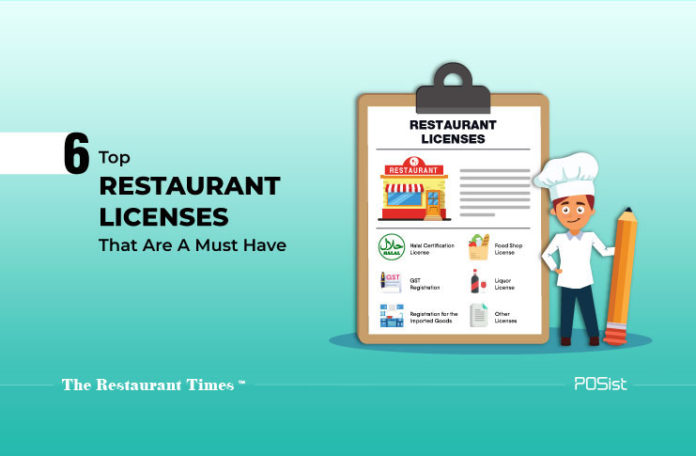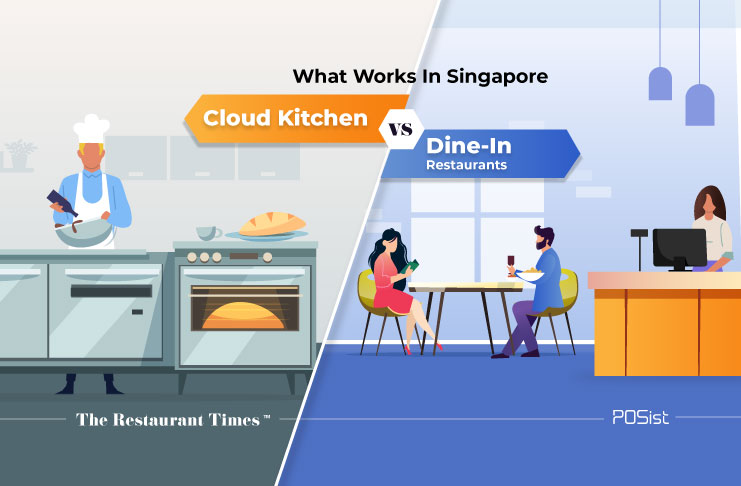With the sprawling restaurant industry in Singapore, many aspiring restaurateurs are honing their dreams and are finally making their mind to dive into the lucrative domain. However, one of the first things that you should know and start planning for well in advance is how you can run your restaurant in Singapore legally. It is always recommended that you have all your restaurant licenses and your legal papers prepared well in advance.
This is primarily because getting these papers is a long process and might hinder your restaurant inauguration if you do not have all of them ready. Hence, right after finalizing and purchasing the property, apply for all the restaurant licenses required. Here, in this article, we will provide you with a list of license that you will need to run a restaurant in Singapore.
Restaurant Licenses That Will Help Run Your Business Seamlessly in Singapore
Getting restaurant licenses in place is a task that many restaurant owners might find confusing. Hence, it is advised that you do your comprehensive research and take advice from people who are well aware of the legal processes. However, even before you start the practical work, we are here to provide you with the knowledge of some of the important licenses that are a must-have in Singapore.
- Halal Certification License
- Food Shop License
- Liquor License
- Registration for the import of processed ingredients and appliances
- GST Registration
- Other licenses
Now, let’s dive in further and explain how you can get these restaurant licenses easily, that will help you open a restaurant in Singapore with ease.
1. Halal Certification
Considering the huge Muslim population in Singapore, it is only advisable that you make your restaurant fit so that it caters to the huge Muslim customers. All you need to do is visit Muis eHalal System (MeS) to apply for the Halal Certificate online. Make sure that all the information you provide there are clear and correct, else your application will be subjected to direct disqualification.
Applications for Halal certification fee for restaurants range between SGD 480 to SGD 640; the exact amount depends on the restaurant’s floor area. This amount is non-refundable and needs to be paid within 7 days of submitting the application for the halal certification, either by cash, cheque, online transfer or at the MUIS (Islamic Religious Council of Singapore) office. On failing to pay the amount within the aforesaid time, the application will be canceled without further information. An additional application fee is not required for change or renewal of the application.
For more Halal Certification related queries visit the official page of MUIS.
2. License For Food Establishment
This license in Singapore is issued by the National Environment Agency (NEA). This is also known as the food shop license, and it is required if you want your business to operate as a retail food outlet where food and drinks are sold wholly by retail.
This is one of the most important restaurant licenses that you must have in place. Several documents are required for applying for this license, and they are:
- An official business profile or the Certificate of Incorporation for owners especially corporate owners.
- A properly scaled metric scheme of the restaurant premises showing the layout of the restaurant explicitly.
- An official rental contract in case the property of the restaurant is rented.
- Approval from the Urban Redevelopment Authority, Housing Development Board or Building and Construction Authority.
- A list with all the restaurant employees who will be handling the food
- Typhoid vaccination certificates for all the employees.
- X-ray certificates for employees starting with the age of 45 and above
- A list with the food hygiene officer
- A food hygiene certificate for the restaurant staff handling the food.
- A food hygiene officer certificate which must be obtained by food caterers.
The processes of obtaining the food shop license can be completed within one or two weeks, and the license will be valid for one year, and you can apply for the said license here.
Not only does a restaurant in Singapore need a Food Shop License they must also comply with the Code of Practice of Environmental Health. For this license, the restaurant owner must provide the following details to the NEA:
- A comprehensive cleaning schedule
- Religious pest control program, and a food safety management plan
- In case the restaurant ventures into food delivery, it must provide additional information about the vehicle used for delivery and a cleaning program for it.
3. Liquor License
If you are planning to offer liquor to your customer in Singapore, even if it is beer, then you must obtain a liquor license from the Liquor Licensing Board in Singapore. There are two types of liquor licenses available in Singapore: the public house license and the beerhouse license.
The application fees for the liquor license depends on the type of the license you are applying for. However, the application fee ranges from SGD 520 to SGD 1600. Both the licenses in Singapore is valid for two years once you obtain it. You will get all your answers for obtaining liquor licenses in Singapore here.
4. License For Importing Food Ingredients and Food Appliances
If you are planning to use import processed food or appliances in Singapore, then you must apply for this license. All you need to do is apply for a registration number, that you will be able to obtain from FCD (Food Control Division) within AVA (Agri-Food and Veterinary Authority).
However, you must remember that before applying for this registration number, you must have one more license in place, this is called the Central Registration Number. A Central Registration Number is the general import/export license, which you can obtain from Singapore Customs.
5. GST Registration
It is stated by the law of Singapore that if your annual revenue of SGD 1 million or more, then you must register for Goods and Service Tax. This tax is essentially on the consumption of goods and services, and it is paid when money is spent on the purchase of goods or services, and this includes imports as well.
It is imperative that you apply for the tax within one month of being liable. And if by chance your businesses annual revenue is less than the aforesaid amount then it is your discretion to apply for GST or not.
As for the norm, once you have applied for GST, you are liable to charge 7% of the price of the goods and the services sold from your customers. This amount will be deducted from the amount that you had to pay for your restaurant’s supplies when you file a GST return. The difference of this amount is the amount of GST that the restaurant will have to pay to the Inland Revenue Authority of Singapore (IRAS), or the amount that the authority refunds you.
6. Other Restaurant Licenses
Apart from the important restaurant licenses you need to have certain other in place, that will help you run your restaurants legally. It is exceptionally important, that you make your restaurant business applicable for the taxation process in the Singapore government.
Apart from the specific food shop license, liquor license, you must also apply for public entertainment license if you are planning to play music for your customers in your premises.
Make sure that you have the above-mentioned restaurant licenses in place that will help you run your restaurant business in Singapore with ease. Get in touch with professionals, if you are an amateur in this domain. And once you have the legal papers, you can be sure to have a stellar restaurant business.

















